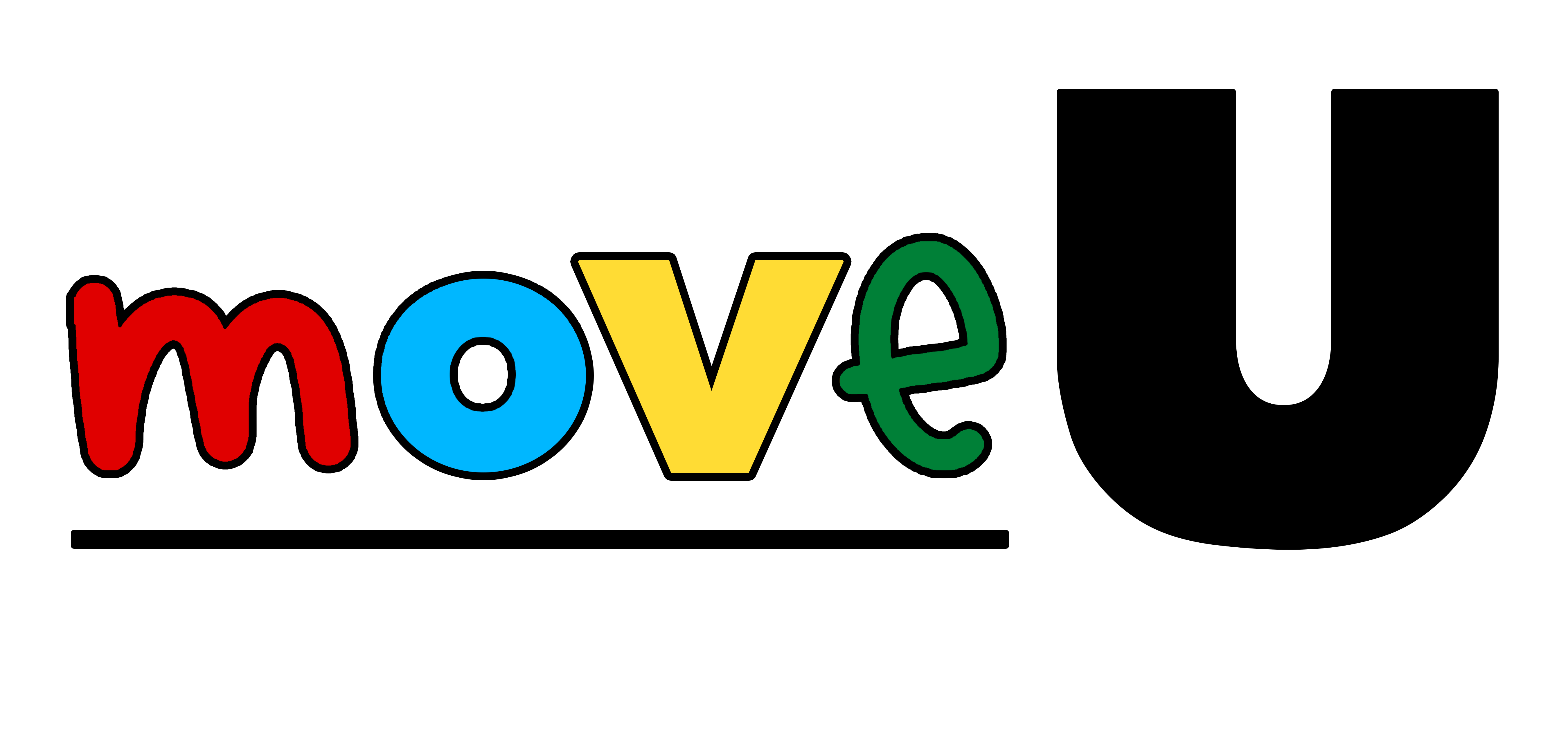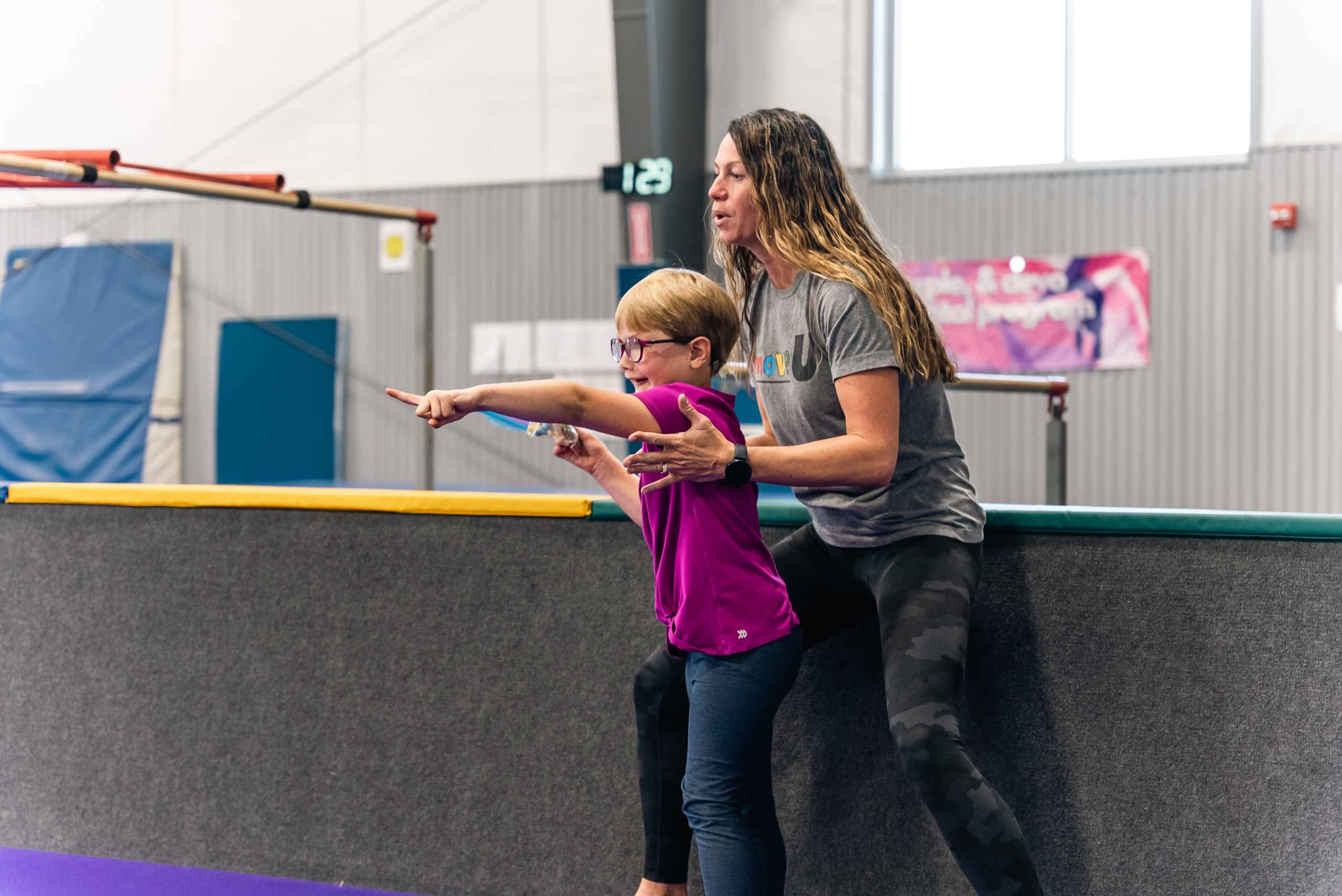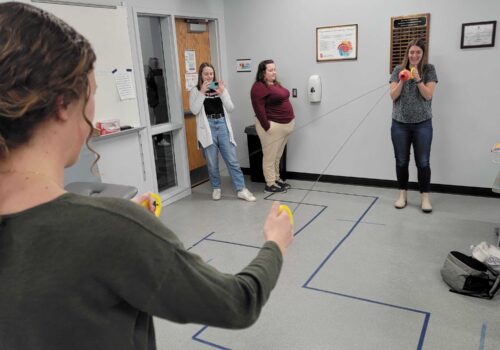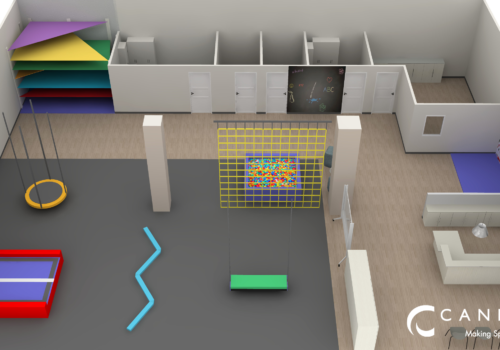Lately, I’ve been meeting many children who have previously explored therapeutic intervention within other therapy practices before finding me at Move U. These kids want to do well and try very hard every day but still aren’t quite making the cut. Some are told that issues are more behavioral and can’t adequately be addressed by an occupational therapist. Others say that they make a positive impact from a standard therapy protocol, whether 1, 2, or 3x/weekly for a certain number of weeks. Often, these families aren’t seeing any progress (minimal, if any) but continuing to go because it is what the professional recommended. I think an important component is often missed by not treating the whole child.
Recently, I met a child struggling with behaviors, following directions, and participating with peers. His treating therapist, who generally works fine motor skills while seated at a table, offered to add a second session every week to focus solely on behaviors. How does that even happen? How do we, as clinicians, not see a child for the whole child that they are or treat the entire individual simultaneously? Maybe the child is not listening because he struggles to keep up, and the task is challenging. Perhaps that child purposefully avoids participation because he would prefer the consequence of leaving the situation instead of staying within it and struggling. Maybe the child is overwhelmed by the busy noises, unexpected sounds, bright lights, and moving parts that he doesn’t even register that the teacher or parent has provided instruction. These are just some of the wonders that quickly fill my thoughts, but attempting to separate the child into parts instead of treating the whole child is certainly not in the child or family’s best interest.
For parents struggling with what to do, know it is okay to ask your therapist what kind of training they have pursued or what specialty certifications they hold. If the treatment plan isn’t working, it may not be the right fit for this moment. Not to say it won’t be later down the road, but in this present moment, something else may be needed. I may not be the right fit for everyone, but I will undoubtedly be the first person to tell you when I feel a different treatment modality is needed or may be of more benefit. If I don’t have an answer to a question, I will research it and report back to you. I treat your whole child and your family unit, not just one component of the problem. It is my joy, passion, and life’s work to do better each and every day, and your child’s success and improved confidence fill my tank.



